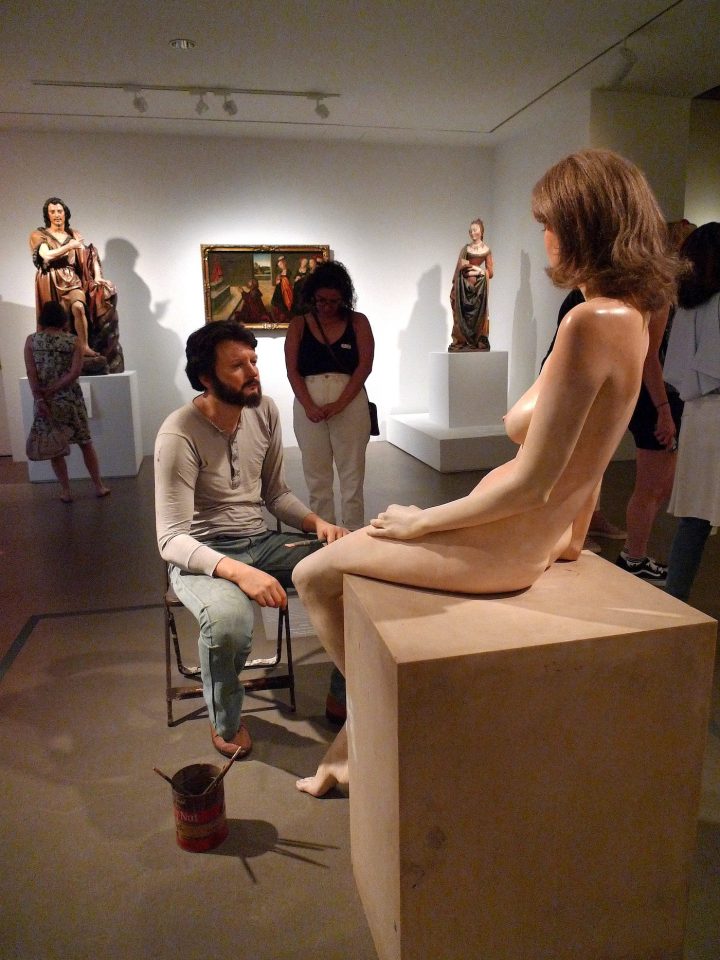Ruben Cordova used his social media profile as an archive of his research, but his photos of the Met Breuer’s Like Life exhibition triggered Facebook’s censors, who then permanently disabled his profile.
Curator and art historian Ruben Cordova thought that Facebook was the perfect platform to archive the photographic materials equivalent to almost a decade’s worth of his research. He created a network of albums, links, commentaries, and comparanda online, sometimes using those resources for his lectures at universities and galleries. This abundance of scholarship even included materials necessary for Cordova’s forthcoming publication.
But disaster struck in the early morning of November 16. That day, Cordova received an upsetting message from Facebook: the social media company had permanently disabled his account due to an alleged violation of community standards banning sexually explicit content. And with that, Cordova lost access to 9 years’ worth of aggregated resources and materials.
According to Cordova, the Facebook algorithm instantly identified the nude woman in John De Andrea’s hyperrealistic “Self-Portrait with Sculpture” (1980) as a living human being. “I was deemed guilty by the algorithm, and the human ‘moderator’ did not override its decision,” Cordova commented to Hyperallergic via email.

The Facebook ban caught Cordova off-guard because the image of De Andrea’s sculpture was just one of about 240 pictures he uploaded from the Metropolitan Museum of Art’s popular Like Life: Sculpture, Color, and the Body exhibition at the Met Breuer in early 2018. Moreover, the images of “Self-Portrait” that he uploaded included a link to the museum website, which would presumably allow a human moderator to fact-check Cordova’s appeal against his ban. And when the art historian did try to appeal Facebook’s decision, he found that none of his messages reached the social media giant through his computer, receiving multiple error messages instead. He did receive a very short message from the company, however, when he contacted them through his Kindle.
“During my time on Facebook, I have posted many thousands of images of sculptures (some of them nude),” Cordova wrote. “But of all these sculptures, only the De Andrea was blocked by Facebook. This must have been because his nude figure is realistically painted and has a human wig, causing the algorithm to read it as a picture of an actual human.”
The curator says that this was not the first time his image of De Andrea’s sculpture caught Facebook’s eye. On November 13, a human moderator contacted Cordova about the image, but then recognized that it was a sculpture and fully restored his account. Three days later, another moderator must have mistaken “Self-Portrait” for a photo of real people, subsequently shuttering Cordova’s account.
Facebook is no stranger to censorship controversies. In 2016, Hyperallergic reported that the company had censored a photo of Copenhagen’s famous “The Little Mermaid” statue, which is ironically the Danish country’s most photographed sculpture. And back in 2013, Hyperallergic itself was censored by Facebook for posting an article that included artist Kate Durbin’s photograph of a woman’s exposed backside. And more recently in August 2018, we reported that the company had censored a Montreal Museum of Fine Art advertisement featuring one of Pablo Picasso’s painted cubist nudes.
News of Cordova’s banishment has spread across academic circles as a warning against art historians and artists who might want to aggregate their research on Facebook’s platform. Véronique Plesch, an art professor at Colby College in Maine, found the news especially upsetting. “This is an extremely disturbing situation for all of us in the art world,” she told Hyperallergic via email.
Hyperallergic reached out to the Met for comment but received no formal reply concerning Cordova’s censorship case against Facebook.
Artist John De Andrea also did not respond to Hyperallergic’s request for comment before publication of this article.
For the original feature by Zachary Small for Hyperallergic, please click here.
